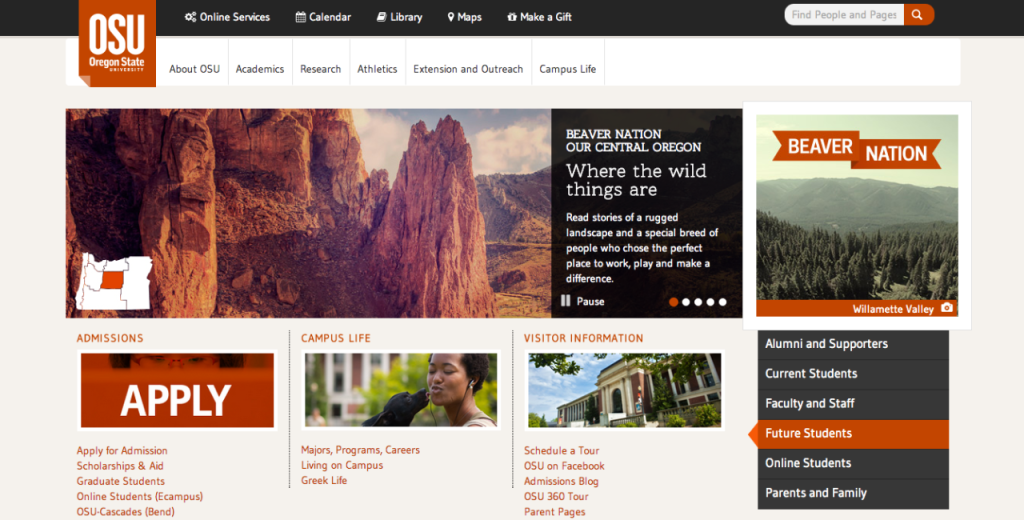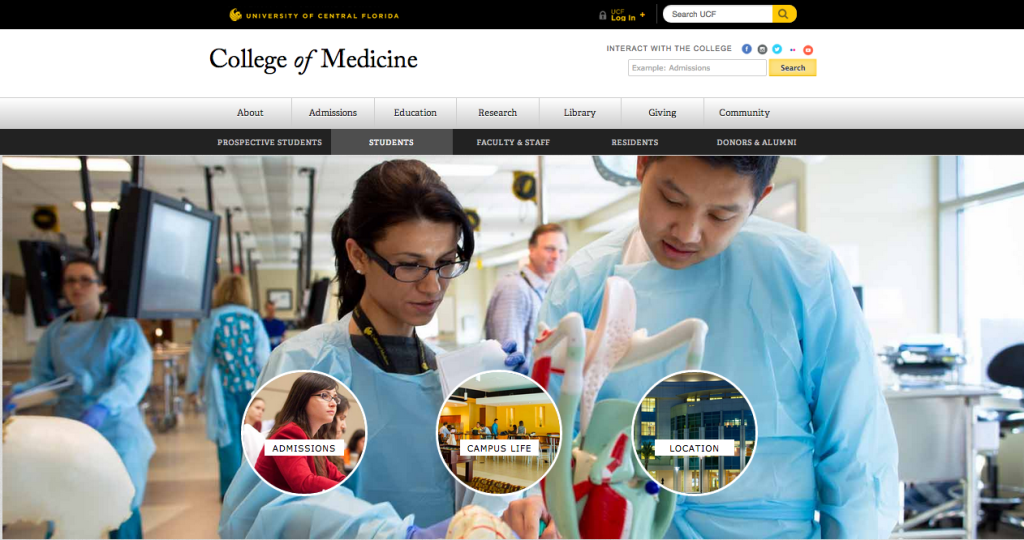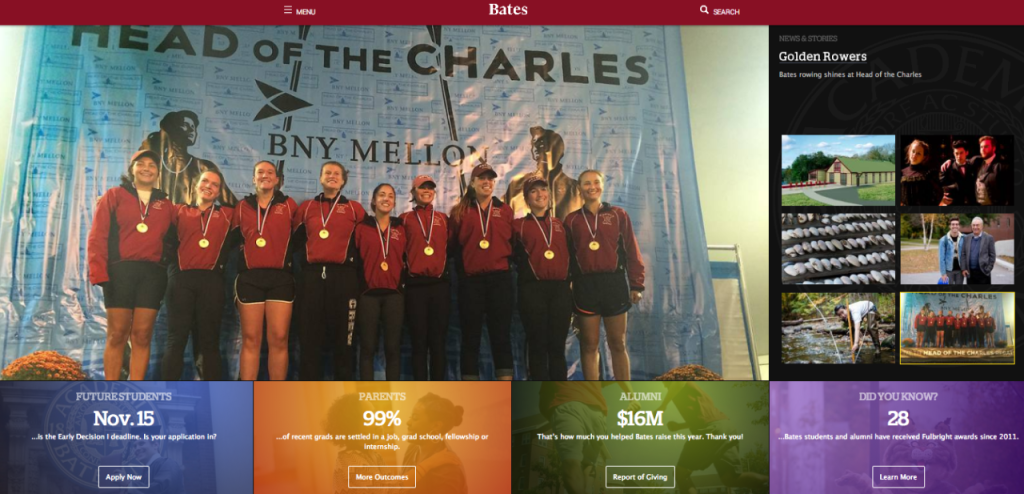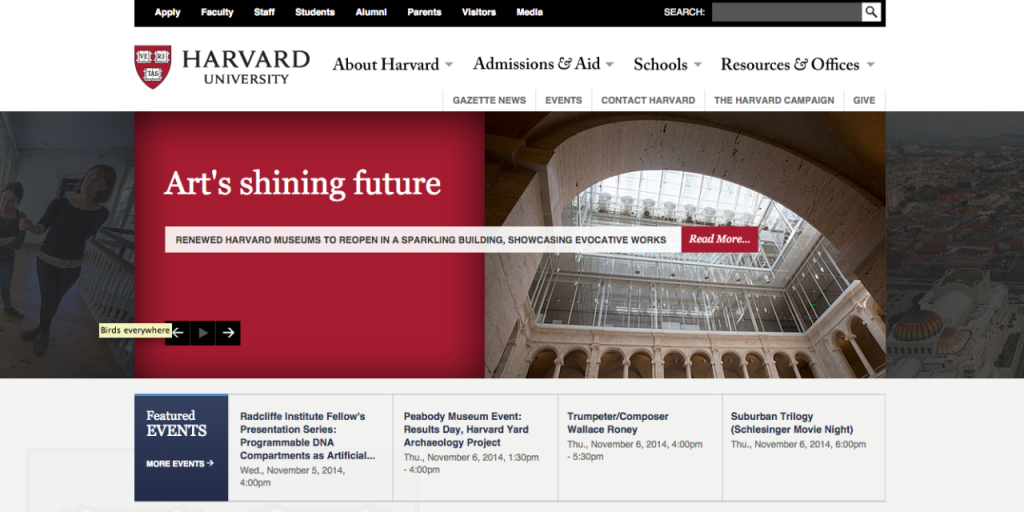University and college websites have a huge job to do. They must recruit and serve students, attract and retain quality faculty and staff, cultivate the alumni community, and grow new research and development opportunities. Luckily, there is a tool that exists for web developers to overcome these challenges and make a university website shine: WordPress.
When researching web developers and web design, you may have noticed that more and more websites are running on WordPress. In fact, according to WordPress, they host 3,455,212 sites for schools, universities, colleges, and districts. There’s good reason for that. WordPress is a platform that allows web developers to build amazing websites, and best of all, they are incredibly easy for university administrators to update.
As a design firm that builds all of its websites on WordPress, we’re often asked why we love working with WordPress, and we touched on some if its merits in a previous post called Is WordPress Like Microsoft Word. From a development standpoint, we love that it’s open-sourced, is highly malleable, and has an endless array of plug-in options for additional customization.
These features might be common knowledge for web developers, but for new or prospective clients, it’s only clear as mud. Even though many of our clients are pretty tech savvy and can appreciate good design, they often have concerns about moving their university website over to WordPress and we’re more than happy to address them.
“Isn’t WordPress for Blogging?”
Yes and no. WordPress.com did start as a blogging system in 2003 and it continues to be one of the most popular blogging platforms around. However, they later created WordPress.org, which released the content management system behind wordpress.com allowing skilled developers to access the full power of wordpress and ignited one of the strongest online communities around. Generally speaking, these two sites serve two very different functions and groups of users; WordPress.com is more commonly used for simple personal blogs and offers limited functionality, while WordPress.org is full-featured and is used by advanced users to create more powerful, feature-rich, and sophisticated websites.
“Can you really develop a unique website for universities by using a program that runs on templates?”
Yes, we can! There’s a reason why this content management system has done so well, even in the world of university websites. WordPress allows developers like us to design websites to look and do just about anything imaginable. We design a new template for each website we build according to the needs, content, and functionality of each client. Then we source any plugins required to facilitate our clients’ specific needs, and integrate them seamlessly.
Not convinced? Here are five examples of stunning university websites that shine and run on WordPress! Check them out. You’ll quickly see that these websites are stunning, unique, and tailored specifically to the needs of each university and its students.


4. The University of British Columbia


As you can see, each website is beautiful, functional, and completely unique. If you still have questions about web development on Wordpress or are you considering moving your university website to WordPress we’d love to hear from you!
Related Posts:
- Why Your University Blog Needs an Editorial Calendar
- 5 Lessons for Designing a Good University Website
- Is WordPress Like Microsoft Word?
- UM Today Case Study
To make your life easier, we've created a 2015 calendar for college and university folks called 12 Months of Awesome (Content). Click on the link below to download.



